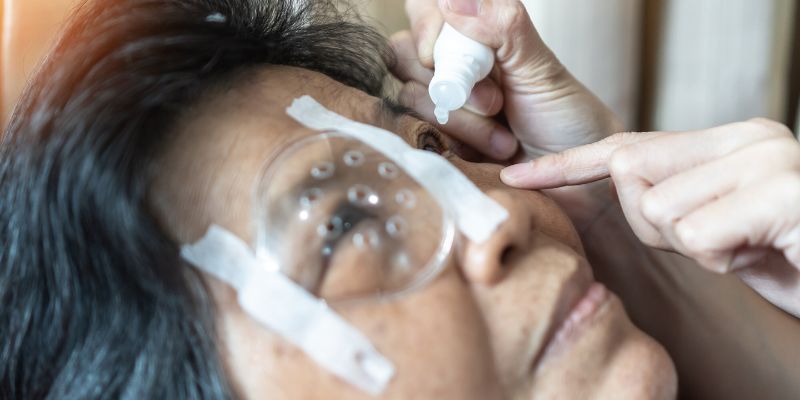How to Prepare for Lymphoma Treatment: Tips for Patients and Families
Cancer treatment can be taxing both for patients and their families. The mental and physical toll of the disease with the unknown future can be intimidating. Whether it's Hodgkin's lymphoma treatments or particular treatments like follicular lymphoma treatment, every kind calls for meticulous preparation and support.
Knowing what to expect, how to handle difficulties, and where to obtain aid will enable you and your loved ones to negotiate this road with more assurance. This article will discuss key advice to help you prepare for lymphoma therapy, guaranteeing that you feel qualified, knowledgeable, and ready for the next phases of your fight against lymphoma.

Tips for Families and Patients to Prepare for Lymphoma Treatment
Below are essential tips to help patients and families prepare for lymphoma treatment and navigate the journey ahead.
Learn About Treatment Types and Options
Knowing the several lymphoma treatments helps one make wise judgments. The type and stage of lymphoma affect the treatments. Hodgkin's lymphoma therapies usually call for immunotherapy, radiotherapy, and chemotherapy, for instance. Every strategy has particular aims and consequences. By contrast, especially for subtypes like follicular lymphoma, non Hodgkin's lymphoma treatments provide more focused methods. Knowing the choices, including targeted therapies, immunotherapy, and chemotherapy, will enable patients to feel empowered and actively involved in their treatment path.
Preparing for Each Treatment Stage
The lymphoma stage will affect the preparation for the stage. For example, while less aggressive than later-stage lymphoma, stage 2 Lymphoma treatment may be more intense than early-stage ones. To avoid surprises, one must know what to expect at every level. Patients can get ready by organizing support, knowing about probable side effects, and talking with their healthcare team about changes in their lifestyle. By being proactive during the treatment phase, one can facilitate better phase preparation and smoother transitions.
Managing Emotional and Mental Health
Treatments and diagnoses for lymphoma might present emotional difficulties like worry and fear. Patients and their families depend equally on emotional endurance. One could find help by interacting with support groups or counseling programs. Encouraging patients to communicate their emotions to loved ones helps to create a good coping mechanism. Mental health experts offer techniques to manage treatment-related stress, therefore lessening the load of the journey.
Understanding Follicular Lymphoma Treatment
Follicular lymphoma treatment sometimes takes a less aggressive approach, especially in the early stages. Patients may go through "watchful waiting" since follicular lymphoma usually advances slowly. When symptoms show up, treatment could still call for radiation or chemotherapy, though. Understanding the course of treatment for follicular lymphoma enables one to create reasonable expectations. Patients feel more relaxed and concentrate more on controlling symptoms than on a rigorous treatment program.

Preparing for Side Effects of Lymphoma Treatments
Every cancer therapy modality causes unique side effects. While radiation can induce skin problems and tiredness, chemotherapy may cause nausea, tiredness, and hair loss. Fever or bodily aches may follow with immunotherapy. Getting ready for these adverse effects means arranging for backup plans. For daily activities, for instance, keeping anti-nausea medications close by or planning assistance at home can simplify life. Side effect planning guarantees patients' comfort and a good attitude.
Communicating With the Healthcare Team
Throughout lymphoma therapy, open contact with the healthcare staff is absolutely vital. Patients should clear any uncertainty by inquiring about the particular treatment plan, including "What's the treatment for lymphoma?" This communication not only fosters trust but also helps patients participate more in their therapy. Open discussion of issues also ensures better treatment plans based on individual needs, thereby helping to change them.
Creating a Strong Support System
Strong support systems enable patients and families to manage the rigors of lymphoma treatment. During trying circumstances, family members, friends, and support groups provide great encouragement. Establishing a system of individuals ready to assist with chores, including driving to appointments or meal delivery, will help to reduce stress. This technique helps patients concentrate on healing and generates good surroundings that benefit caregivers as well as the patients.
Preparing Financially for Treatment Costs
From hospital visits to medications, lymphoma treatment might result in a large outlay. Reducing concern over treatment expenses depends on financial planning. Patients can investigate insurance coverage and discuss choices with hospital financial consultants. Investigating grants or help programs for people living with cancer can also offer respite. A financial plan guarantees that patients pay more attention to recovery than to their treatment expenses.
Adjusting Lifestyle for Optimal Health
Maintaining a healthy lifestyle helps lymphoma treatments be more successful and encourages recovery. Little lifestyle adjustments, including a balanced diet, consistent exercise, and enough sleep, can raise resilience. Furthermore, avoiding pressures and maintaining a good attitude can improve health results. Speaking with a physical therapist or dietitian might give individuals in therapy specific recommendations.
Staying Informed About New Treatments
New optimism for patients comes from ongoing advances in lymphoma treatment. Maintaining knowledge of developments like immunotherapy or novel treatment for non Hodgkin's lymphoma helps patients feel in charge. Talking about possibilities with the healthcare practitioner can create chances for advanced treatments that better fit a patient's particular demands and disease profile.
Conclusion:
Preparing for lymphoma treatment requires careful planning and support. By understanding treatment options, managing side effects, and staying informed, patients can approach their journey with confidence. Emotional resilience, a strong support system, and financial preparedness also play key roles in navigating the challenges of lymphoma therapy. Open communication with healthcare providers ensures the best possible care. With proactive preparation, patients and their families can reduce stress and focus on recovery. Each step taken toward readiness strengthens the patient's ability to face lymphoma treatment with hope, determination, and resilience.












